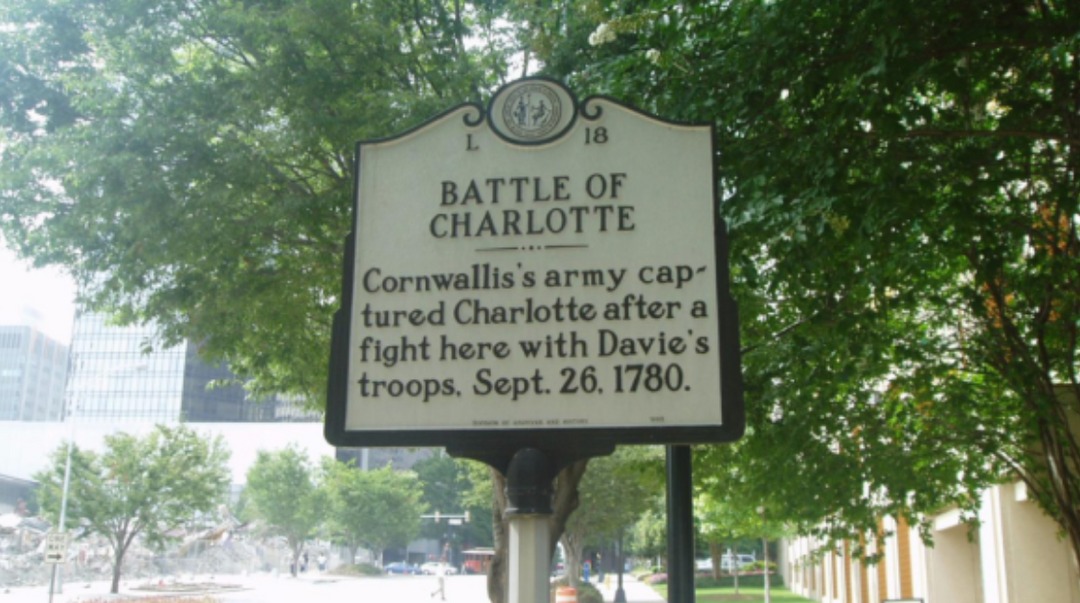Fact Friday 445 - The AKA that brought kindergarten to Charlotte-Mecklenburg Schools
Happy Friday!
This week's Fact Friday comes to you from the Foundation for the Carolinas' 'Neighbors Who Inspire' series.
---
Elizabeth Garland Schmoke Randolph was a trailblazing woman in top leadership at Charlotte Mecklenburg Schools from the late 1950s into the 1980s.
Born March 18, 1917, in eastern North Carolina, she grew up in a high-achieving family; nephew Kurt Schmoke would make history as the first African American mayor of Baltimore. Young “Libby,” as she was known, followed in her mother’s footsteps to become a teacher. “All six Schmoke children grew up knowing they were going to college,” Randolph later told a Duke University interviewer. “She taught out in the county, and when she came home, we had dinner, then we got out our books and our homework and sat around the table and studied.” After graduating first in her class at Shaw University, she taught in rural and small-town schools, then came to Charlotte in 1944.
Randolph served for 14 years as a beloved English teacher at West Charlotte High School, leaving the classroom reluctantly when Superintendent Elmer Garinger asked her to be the founding principal at University Park Elementary in 1958. Since African Americans ran no public agencies nor any corporate office, being a principal in charge of a school’s budget, its physical space and its roster of teachers meant she was not only a respected educator but also one of Charlotte’s top Black executives.

Her administrative skills and high energy propelled her upward into central administration at Charlotte Mecklenburg Schools. When the U.S. government began offering incentives for localities to launch kindergarten classes in the 1960s, she led the effort that made kindergarten part of all CMS elementary schools. Being in the CMS central office was a milestone, she later recalled: “Under segregation, Black persons didn’t even go to the central office unless they were janitors.”
In the 1970s, she was tapped to co-lead the school district. Thanks to the 1971 Supreme Court decision in Swann v Mecklenburg Schools, CMS implemented an energetic program of busing to create racial balance in every school. At the height of that work, CMS fired its superintendent and put a four-person team in charge for the 1976–1977 school year. Elizabeth Randolph was one of the four — the first African American female in top leadership at CMS.
Outside of work, she gave generously of her time to what would now be called “community-building.” She recruited members to the YWCA and served on boards of numerous nonprofits. She cherished involvement in Alpha Kappa Alpha sorority. In 1963 she organized 75 of her sorority sisters in a “Mecklenburg County Stay-In-School Committee” that provided summer educational experiences and one-on-one academic coaching. Over the years, she held top sorority offices including Mid-Atlantic Regional Director and National Parliamentarian.
Randolph loved the community, and the community loved her back. Charlotte’s female leaders chose her as the 1979 Woman of the Year – the city’s highest honor. After she retired in 1982, the public library asked her to edit the book An African American Album: The Black Experience in Charlotte Mecklenburg. In 2017, CMS named the main office tower at its new administrative headquarters in Randolph’s memory.
Randolph’s work continues today thanks to her vision and the Foundation For Black Philanthropy. Randolph established an endowment fund to support nonprofits working in the Black community. Her endowment fund, along with a bequest from Lethia Jones Henderson, helped seed the African American Community Foundation, which was created in 1993. Relaunched as Foundation For Black Philanthropy in 2021, the fund continues to have a significant impact in the Black community through its grantmaking to local nonprofits.

On Elizabeth Randolph’s death in 2004, the Charlotte Observer wrote an editorial of appreciation. “Mrs. Randolph’s life is a sterling example of a life well-lived. Her impact is broad and deep. … This community is lucky to have reaped the benefits.”
---
Sources: "From Teacher to Trailblazer," by Tom Hanchett, August 10, 2022, The Foundation for the Carolinas.
Email chris@704shop.com if you have interesting Charlotte facts you’d like to share or just to provide feedback!
“History is not the past, it is the present. We carry our history with us. We are our history.” - James Baldwin




